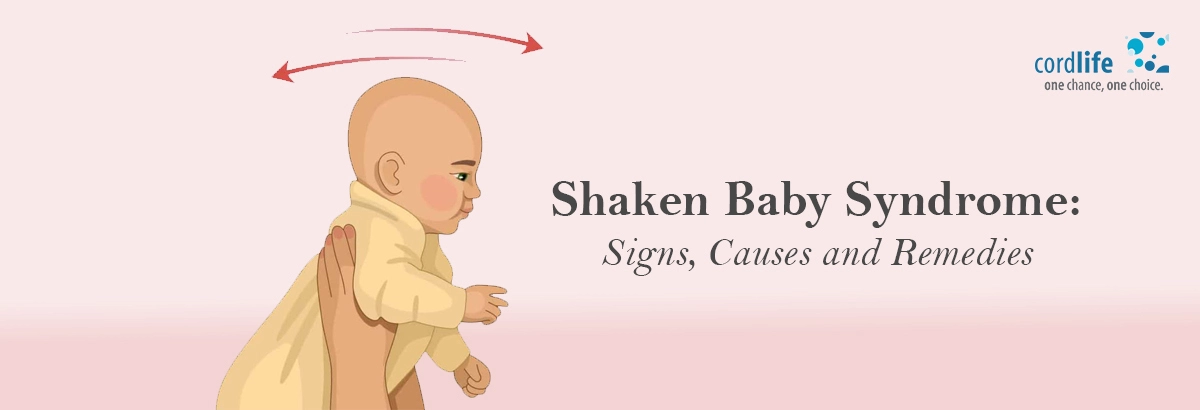Table of Contents
Once you have a newborn in your house, you have many visitors (friends, relatives and caregivers) trying to take the baby in their arms and play with him/ her. While they are busy with your little one, be careful about one thing, they shouldn’t shake the baby.
What is Shaken Baby Syndrome?
Shaking your little one may be a fun activity for your guests but you need to remind them that it may not impact your baby’s brain positively. This is something known as abusive head trauma or shaken baby syndrome. Although such a condition may be preventable however as new parents you need to educate yourself about the odds of shaken baby syndrome.
What Can Cause Shaken Baby Syndrome?
The little one’s head is large and heavy compared to the other parts of the baby’s body. The baby’s brain is soft. There may be weakness in the muscles and ligaments of the neck. Your friends, relatives, or irritated caregivers may seriously harm the brain of your crying or fussy child if they handle the child recklessly or shake him forcefully. Since the baby’s brain is fragile shaking their heads back and forth makes the brain bang against the skull. Additionally, such an action makes the blood vessels inside the baby’s brain tear and cause haemorrhage further leading to swelling, bruising or even bleeding inside the brain.
Can Swings Cause Shaken Baby Syndrome?
No. it is a serious concern that does not arise from gentle bouncing, playful swinging, tossing your child in the air, or even jogging with them. Likewise, it is highly unlikely to occur from minor accidents like falling off chairs, downstairs, or being accidentally dropped from a caregiver’s arms.
What are the Symptoms of Shaken Baby Syndrome?
There are not many cases of Shaken Baby Syndrome in India. As per research, only one isolated report from the Indian Subcontinent has been reported. As per the report, the symptoms of Shaken baby syndrome are as follows:
- The immediate signs of Shaken Baby syndrome include unconsciousness, shock and seizures.
- You will not notice your little one smiling or babbling
- You will notice your baby extremely irritated
- Vomiting, breathing problems, poor appetite and tiredness are common
- The little one won’t be able to raise his or her head
- In this condition, your baby may not be able to focus or move the eyes
- Sometimes there may be a combination of trauma, haematoma, brain damage (cerebral palsy), fractures, etc.
Apart from these symptoms of Shaken Baby Syndrome if you notice your baby bleeding from the eyes or ears, feeling dizzy or fussy or crying inconsolably you need to make the doctor’s appointment. The healthcare practitioner will tell the various ways to treat it.
How to Treat Shaken Baby Syndrome?
A severely affected child may need emergency care with the help of oxygen and surgery. All this to stop the internal bleeding in the brain immediately. Along with this, the doctor may treat the burns, broken bones, etc. Ophthalmologists play a crucial role in the treatment of children affected by Shaken Baby Syndrome (SBS) because retinal bleeding is a frequent complication in infants with this condition. Engaging these specialists is vital to properly assess and address any eye damage that may occur. Timely intervention is essential in managing the impacts of SBS and fostering the best possible recovery for your child. Ensuring that your little one receives comprehensive care from all necessary medical professionals can significantly improve outcomes and provide peace of mind during this challenging time.
How to Prevent Shaken Baby Syndrome?
It may not be possible to prevent it completely. As new parents, you need to be a little careful.
- Tell your guests or caregivers not to shake your fussy or crying baby. Instead, try to understand the reason behind your infant’s crying
- Ensure that you feed your baby slowly
- Frequently make your baby burb
- Try to sing or talk to your baby in a lower voice
- Gently rock the baby
- Hold the little one against your skin and enjoy the benefits of skin-to-skin contact
- Taking the baby for a ride in a stroller or car can be a soothing experience for both the infant and the caregiver. The gentle motion often helps calm a fussy baby, providing a change of environment and fresh air.
- Try not to leave your baby alone with someone who has a history of violence or temper.
Your newborn’s health is your highest priority. Take utmost care.
